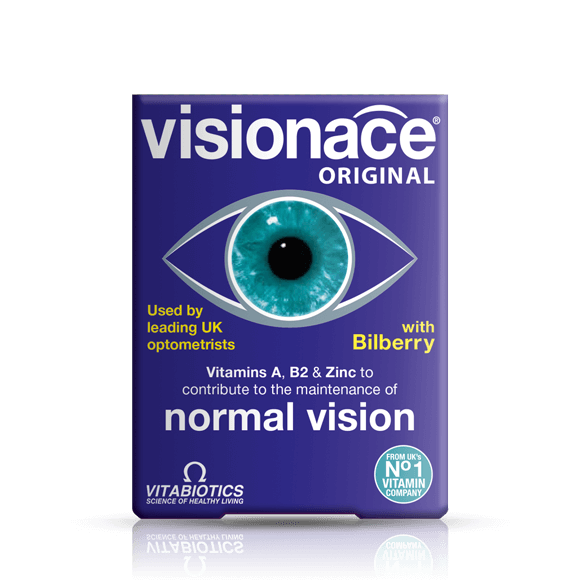Your eyes do a lot for you every single day – from helping you focus on work to taking in the details of the world around you. So it’s only natural to want to look after them. But what vitamins are good for eyes, and how can you make sure you’re getting enough of the best vitamins for eyes?
Certain nutrients contribute to the maintenance of normal vision, and understanding which ones matter can be a helpful step in supporting your eye health. Let’s take a closer look at the vitamins and minerals that play a role, the foods that provide them, and how supplements may also support your nutritional intake.
What are the best vitamins for the eyes?
When it comes to vision, some nutrients are particularly important. If you’ve ever asked yourself which vitamin is good for eyes, here’s a closer look at the key players.
Vitamin A
Vitamin A contributes to the maintenance of normal vision. You’ll find it in foods like carrots, sweet potatoes and spinach, or in specially formulated eyesight vitamin options such as vitamin A supplements. Beta-carotene, a carotenoid found in colourful foods, such as carrots, is a provitamin which is converted into vitamin A in the body.
Omega-3 DHA
Docosahexaenoic acid (DHA), an Omega-3 fatty acid, contributes to the maintenance of normal vision, with a daily intake of 250mg. DHA is found in high amounts in the retina. Oily fish such as salmon and mackerel are excellent dietary sources, while omega 3 supplements can be a good option if you don’t eat much fish.
Vitamin B2 (Riboflavin)
Vitamin B2, or riboflavin, contributes to the maintenance of normal vision and helps protect cells from oxidative stress. You’ll find it in foods such as milk, eggs and fortified cereals, as well as in vitamin B supplements.
Zinc
Zinc contributes to the maintenance of normal vision and to normal metabolism of vitamin A, helping your body make effective use of the vitamin A you consume. Vitamin A is present in the retina, which is why it’s a common nutrient in supplements for eye health. You’ll also find zinc in meat, poultry, legumes and nuts, as well as in zinc supplements.







